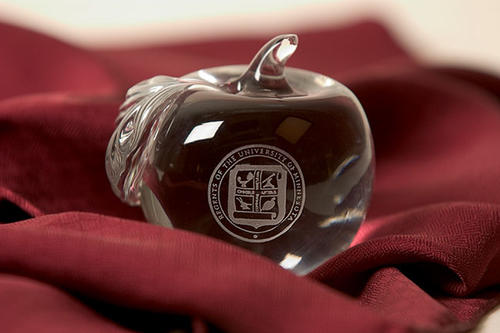U of M Board of Regents approves appointment of new Gopher Athletics Director Mark Coyle

With unanimous support, the University of Minnesota’s Board of Regents today approved the appointment of Mark Coyle as the new director of Gopher Athletics.
Coyle, a former athletic administrator at the U, returns to Gopher Athletics after serving as athletics director at Syracuse University and Boise State University and as deputy athletics director at the University of Kentucky.
“The Board joins the administration, donors, alumni and thousands of Gopher fans in being incredibly excited to welcome Mark as the new Gopher Athletics director,” said Regents Chair Dean Johnson. “President Eric Kaler and the search committee deserve credit for hiring an experienced and highly qualified athletic director. While there have been some well-publicized challenges recently associated with Gopher Athletics, the Board has full confidence in Mark’s ability to stabilize the department and provide strategic leadership.”
Coyle is expected to move back to Minnesota around Memorial Day. His five-year contract begins June 1.
In a discussion on Board oversight of intercollegiate athletics, the Governance and Policy Committee examined the Board’s history of oversight and current framework. Conversations around Regents’ expectations and future aspirations for athletics will continue and may lead to changes in Board policy or practice. This priority will factor into the Board’s planning this summer. Also, in June, the committee will consider policy changes regarding approval of certain positions that are highly compensated. The President will prepare recommendations for the process and thresholds for the Board’s consideration.
An accessible, affordable, exceptional University experience
President Kaler’s proposed $3.8 billion FY17 operating budget to advance the University’s mission was reviewed by the Board today. The budget will invest more than $97,000 to increase availability of student mental health services on the Twin Cities campus, responding to the number one public health issue across the University. This investment is made possible by the student service fee, building on investment of nearly $130,000 last year. The FY17 investments will support new staff at Boynton Health Service.
Additionally, the proposal includes $7.5 million for critical initiatives stemming from Driving Tomorrow, the Twin Cities campus strategic plan. A robust and comprehensive planning process led by faculty, Driving Tomorrow focuses work across the campus to address the grand challenges of a diverse and changing world. Investments in new faculty members, opening or enhancing additional research topics and expansion of Grand Challenge courses, where students and faculty explore topics ranging from global hunger to climate change to conquest of disease to reconciliation and justice. With a successful first year of offerings, more courses and involvement are planned. The Board will further discuss Driving Tomorrow implementation in June.
Kaler’s proposal regarding tuition is market sensitive and responsive to students’ needs. About 20,000 undergraduate students will see no tuition increase in FY17, including all resident undergraduates attending the U’s Crookston, Duluth, Morris and Rochester campuses. On the Twin Cities campus, a 2.5 percent tuition increase for resident undergraduates is proposed. However, financial aid enhancements will completely offset the increase for approximately 10,000 students with family incomes up to $120,000. Over the last five years, the annual tuition increase for University of Minnesota students has been kept at about 1 percent a year.
Increases for non-resident, non-reciprocity undergraduate students on the Twin Cities (9.9 percent, or $2,040) and Morris (16.8 percent, or $2,000) campuses are proposed, with continuing students receiving waivers to mitigate the increases. At UMD, the recommended non-resident, non-reciprocity rate is proposed to increase by 2.5 percent, or $396.
Also, Kaler plans to reallocate $15 million in administrative costs and give faculty and staff a 2.5 percent merit-based, compensation increase. For more details, read this press release or review the docket materials.
Board members, who heard feedback on the proposal from members of the U community and general public at a forum today, will act on the operating budget in June. The Board will also consider the proposed $374.6 million FY17 capital budget, which aims to preserve and enhance facilities across the U of M system. The budget largely consists of the University’s state bonding request to address educational and research needs on the Twin Cities and Duluth campuses.
A world-class academic health system
University leaders updated the Board on negotiations among the U of M, University of Minnesota Physicians (UMP) and Fairview Health Services to create a new entity called University of Minnesota Health (M Health).
Representatives outlined major terms of the integration, which will strengthen a shared academic mission to improve health, discover new cures and treatments, and educate the health workforce. The University will receive guaranteed academic support of $75 million, maintaining previous levels of funding from UMP and Fairview. These funds are in addition to:
- Variable support based on M Health operating performance
- A new $1 million Clinical Innovation Fund
- A plan for capital investment in private inpatient rooms and upgraded operating rooms
The Board discussed funding, physician leadership and clinical operating structure, as well as a process for determining management structure and governance roles. Action is expected in June with final definitive agreements planned for August 1.
The Board also:
reviewed revisions to the Student Conduct Code. In light of national attention and conversation to issues regarding student conduct, the Board and administration instituted this review. It focused on medical amnesty, clearer sexual misconduct definitions and due process protections. Additional proposed changes regard peaceable assembly, interim suspension and holding student groups responsible under the code. Consultation on the proposed changes has occurred with students, faculty and staff on all U of M campuses. The Board will consider action on the revisions in June.
honored award winners. Student, faculty and staff honorees were formally recognized for their achievements and contributions on behalf of the University.
See President Kaler's report to the Board.
The Board will meet again on June 9-10. For more information, including meeting times and locations, go to the Regents website.
- Categories:
- Sports and Recreation




